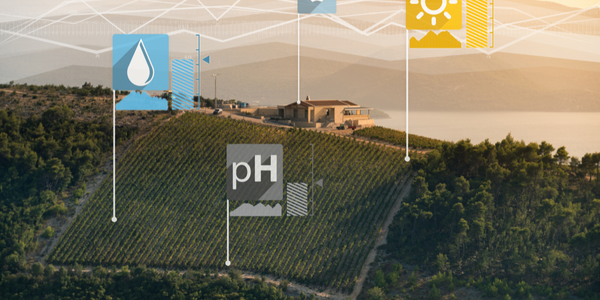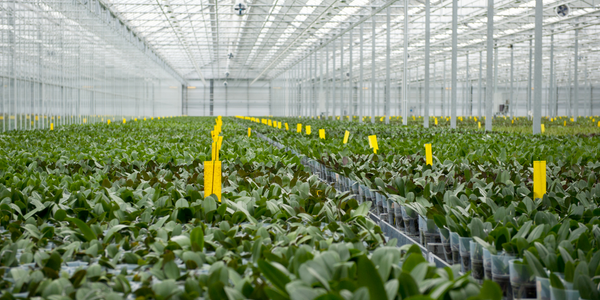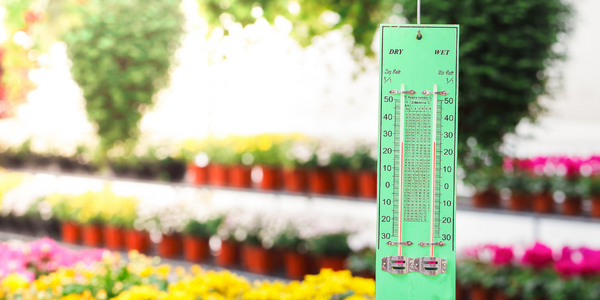农场监控和精准农业

概述
ÂÜúÂú∫ÁõëÊéßÂíåÁ≤æÂáÜÂÜú‰∏öÊòØÂÜúÂú∫ÁÆ°ÁêÜʶÇÂøµÔºåÂÆɉΩøÁºÝÊÑüÂô®„ÄÅÊù•Ëá™Â§ñÈÉ®Á≥ªÁªüÁöÑÊï∞ÊçÆÔºà¶Ç§©Ê∞îÊä•ÂëäÔºâÂíåÁΩëÁªúÈÄö‰ø°Êù•ÊÝπÊçÆÊØè‰∏™Áî∞Âú∞ÁöÑÁâπÂÆöÊù°‰ª∂ÂÆöÂà∂ÂÜú‰∏öÊìç‰Ωú„ÄÇÂÜúÊ∞ëÈÄöËøቺÝÊÑüÂô®ÁîüÊàêÊï∞ÊçÆÂπ∂ÂàÜÊûê‰ø°ÊÅ؉ª•ËØщº∞ÂΩìÂâçÂÅöÊ≥ïÂπ∂ËøõË°åÊîπËøõ‰ª•ÊèêÈ´òÊïàÁéáÂíåÊúâÊïàÊÄß„ÄÇÊúâ§öÁßçÊô∫ËÉΩÂÜú‰∏öÂ∫îÁî®ÔºåÂåÖÊ㨉ΩúÁâ©ËßÇÂØü„ÄÅÂÜúÁî®ËΩ¶ËæÜË∑üË∏™„ÄÅÁÅåÊ∫âÁÆ°ÁêÜ„ÄÅÁâ≤ÁïúÁÆ°ÁêÜÂíåÂ≠òÂÇ®ÁõëÊéß„ÄÇ
适用行业
- 其他
适用功能
- 维护
市场规模
2017 年精准农业市场价值 44.2 亿美元,预计到 2023 年将达到 95.3 亿美元,预测期内的复合年增长率为 13.38%。
技术观点
精准农业集成了哪些技术?
GPS Âíå GIS ÊäÄÊúØËûçÂÖ•Êó•Â∏∏ÂÜúÂú∫Â∑•‰Ωú„ÄljΩ܉πüÂåÖÊ㨉ΩúÁ⩉ºÝÊÑüÂô®„ÄÅËà™Á©∫Âíå/ÊàñÂç´ÊòüÂõæÂÉè„ÄÇ
Ê°à‰æãÁÝîÁ©∂.

Case Study
Intelligent Farming with ThingWorx Analytics
Z Farms was facing three challenges: costly irrigation systems with water as a limited resource, narrow optimal ranges of soil moisture for growth with difficult maintenance and farm operators could not simply turn on irrigation systems like a faucet.

Case Study
Greenhouse Intelligent Monitoring and Control Solution
Farming Orchids is the most successful form of precision farming in Taiwan, and also the most exported flower. Orchids need a specific temperature and humidity conditions to grow and bloom, and its flowering time may not be in line with market demands, so the price collapses when there is overproduction. Therefore, some farmers began to import automated greenhouse control systems for breeding and forcing, which not only improves quality, but also effectively controls the production period and yield to ensure revenue. In 2012, an orchid farmer built a Forcing Greenhouse of about 200 pings (approximately 661 Square Meters) in Tainan, Taiwan. The system integrator adopted Advantech’s APAX-5000 series programmable automation controllers to build the control platform, coupled with Advantech WebAccess HMI/SCADA software, to achieve cloud monitoring. The staff of the orchid field can monitor important data anytime via smart phone, iPad, and other handheld devices, and control the growth and flowering conditions. System requirements: In the past, most environmental control systems of orchid greenhouses in Taiwan used PLCs (Programmable Logic Controller) with poorscalability and control, and could not be connected to the Internet formonitoring from the cloud. For advanced database analysis and networking capability, the PC platform must be adopted. Therefore, PAC Systems (Programmable Automation Controller) with both PLC programming capabilities andPC functions is a better choice.The environmental control of the Orchid greenhouse switches on and off devices like fan, shade net, cooling/heat pump, liquid flow control, water-cooling wall etc. It is controlled by a control panel of electric controllers, and is driven by a motor, to adjust the greenhouse temperature, humidity, and other environmental conditions to the set parameters.

Case Study
Precision beekeeping with wireless temperature monitoring
Honeybees are insects of large economic value and provide a vital service to agriculture by pollinating a variety of crops. In addition, bees provide us with valuable products such as honey, beeswax, propolis, bee venom, etc. Monitoring of honeybee colony health, population, productivity, and environmental conditions affecting the colony health have always been exceedingly difficult tasks in apiculture. Research has shown that even small deviations (by more than 2°C) from the optimal temperatures have a significant influence on the development of the brood and the health of adult bees.


